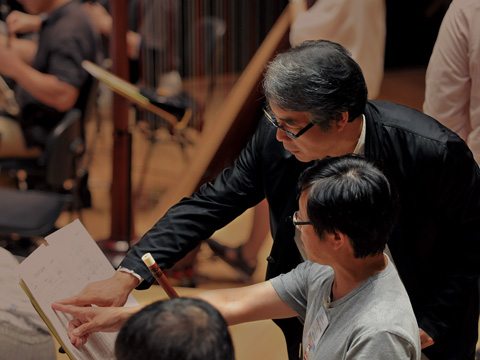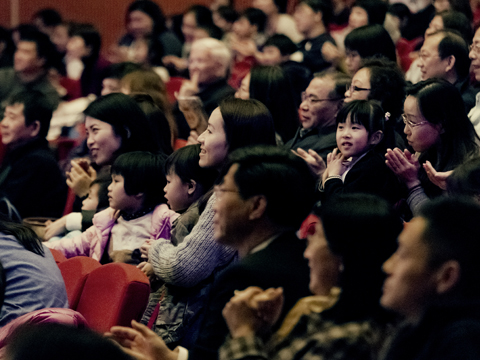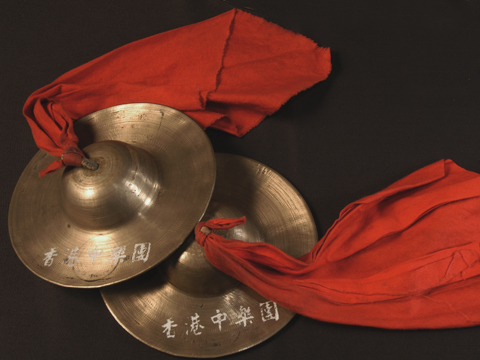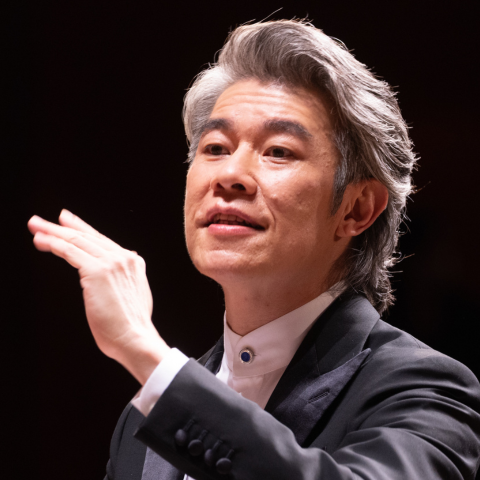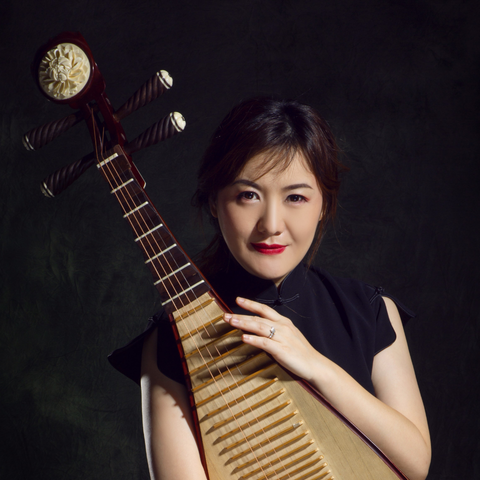
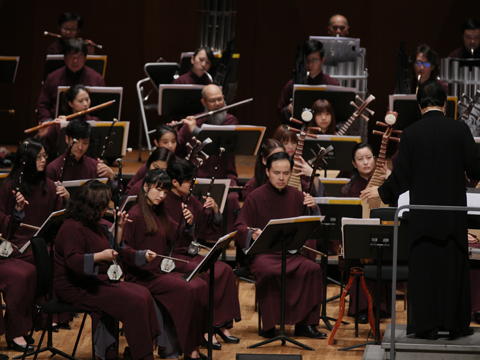
HKCO
Hong Kong Chinese Orchestra Environmental, Social and Governance Artistic Director and Principal Conductor for Life Orchestra Members Council Advisors & Artistic Advisors Council Members Management Team Vacancy Contact Us (Tel: 3185 1600)

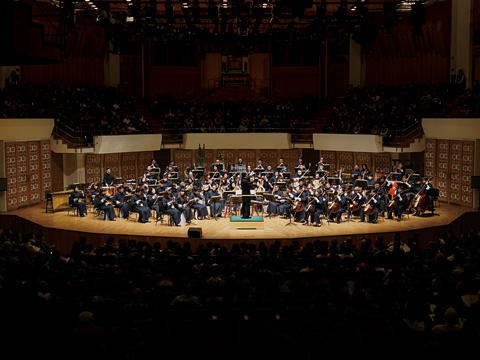
Concerts

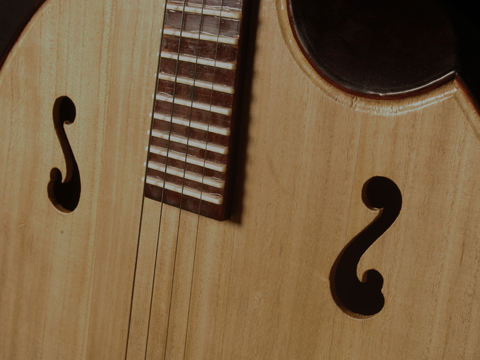
Education
The HKCO Orchestral Academy Hong Kong Youth Zheng Ensemble Hong Kong Young Chinese Orchestra Music Courses Chinese Music Conducting 賽馬會中國音樂教育及推廣計劃 Chinese Music Talent Training Scheme HKJC Chinese Music 360 The International Drum Graded Exam

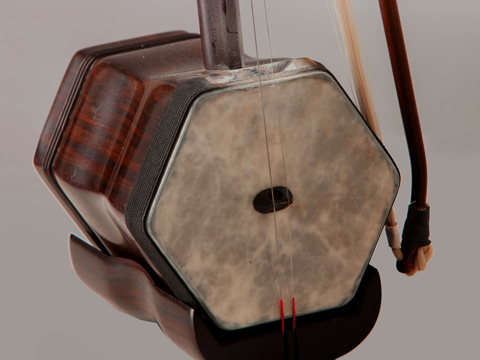
Instrument R&D
Eco-Huqins Chinese Instruments Standard Orchestra Instrument Range Chart and Page Format of the Full Score Configuration of the Orchestra
47th Orchestral Season
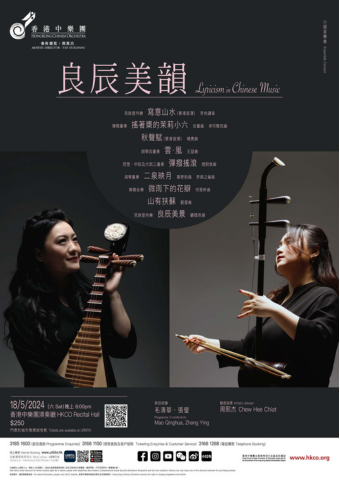
Lyricism in Chinese Music
Programme coordinator, Pipa: Zhang Ying
Mao Qinghua, Huqin Co-Principal and Zhonghu Principal, and Zhang Ying, Pipa Principal of the HKCO, may play instruments that are distinctly different in sound and performance style, but the two ladies share the same sweetness and gentleness in their intricate musical expressions that show their capacity to delineate the imagery within the music through nuanced sounds. The programme of this concert is presented in various Chinese chamber ensemble formats (or the ‘silk-and-bamboo’ form), with all the unique charm of the repertory complete with interpretations that bring out the scenic, philosophical and emotive elements of the genre.
Chinese Chamber Music Mountains and Streams in Brush and Ink (Hong Kong Premiere) Li Shangqian
Plucked-string Ensemble Slowing Rowing on Jasmine Waves Ren Chung Arr. by Cho Szu-Ya
Ode to the Sound of Autumn Yang Yong
Huqin Quartet Cloud.Wind Wang Se
Pipa, Zhongruan and Daruan Trio Tan-Tiao Rock Luk Wai-chun
Huqin Ensemble Reflection of the Moon on the Water Hua Yanjun Arr. by Lee Huanzhi
For Plucked String Ensemble Petals in the Drizzle Ho Man-hin
There is Mulberry on the Mountain Liu Xing
Chinese Chamber Music Brilliant Day and Dazzling Sight Gu Huaiyan
The concert runs approximately 61 minutes without intermission.
Chinese Chamber Music Mountains and Streams in Brush and Ink Li Shangqian (Hong Kong Premiere)
Chinese freehand landscapes use succinct brushstrokes to depict nature’s mountains, rivers, scenery, cliffs, forests, and dwellings. They are usually painted on a special form of paper known as Xuan paper, using a quick and loose brush technique that sends the ink soaring in ways that more faithfully captures the charms of the subject matter than the rigid and precise details of other styles. Painting mountains and streams in brush and ink, freehand landscapes also more directly express the artist’s sentiments.
The composer incorporates his unique feelings towards the landscapes of their homeland and the deeply alluring timbers of Chinese music to paint a musical landscape.
Plucked-string Ensemble Slowing Rowing on Jasmine Waves Ren Chung Arr. by Cho Szu-Ya
The composer often enjoys impromptu jamming with his younger brother, Diao Peng, at home, playing around with the piano and the zhudi (bamboo flute). This is one of the inspiring moments in their fun-filled sessions as they improvised on a standard from the Jiangnan Sizhu repertoire, Lao-Liu-Ban (in slow tempo and ornamented) by adding pop-style chords and weaving in the theme melody of the popular Chinese folk song, Jasmine. For the development section, they used contrapuntal variations. The original composition was for a trio featuring the xiao, zheng and zhongruan. The present arrangement is for a plucked-string quartet. The music opens with a wistful narrative on the xiaoruan and zhongruan, with the zhongruan slowly swaying and surging like the rippling water of the lake. The daruan is the boatman, leisurely pushing his pole into the water as the boat moves forward. The pipa, in her typical, demure and sweet notes, floats on the jasmine waves as she retells the persistent Lao-Liu-Ban that refuses to give up. The melody of Jasmine flies by, riding on the breeze and casting a long trajectory in the air. The Xiao-Liu-Ban continues to row on the jasmine waves, and slowly, slowly gets out of sight.
- Ren Chung
Ode to the Sound of Autumn Yang Yong
Reflecting on reading Ouyang Xiu's Ode to the Sound of Autumn (also known as Qiusheng Fu) at night: While reading at night, it's quiet, yet there are distant sounds, resembling waves, and also like wind and rain. Listening intently, it's eerie, yet it's truly the sound of solitude, the sound among the trees, indeed the sound of autumn. It's both refreshing and poignant, sometimes mournful and chilling, sometimes sorrowful and howling with passion. It's also filled with the spirit of warfare and weapons, solemn and murderous in its essence... Alas, all things past their prime will inevitably decline... Is that so? I ask... Yet my thoughts receive no response, only the sound of “insects chirping incessantly on the four walls, as if sighing along with me.”
- Yang Yong
Huqin Quartet Cloud.Wind Wang Se
Clouds are constantly changing, in shape and in colour;
Wind is elusive - it can be a breeze or a gust, here now and gone next.
And now they meet,
Bringing no pain, disaster, ruffled hearts and disturbed minds,
Only a day where clouds and the wind mix and mingle,
Filled with hopes for the future, prayers and yearnings….
- Wang Se
* The music was commissioned by the HKCO and premiered in June 2012 at the ‘HKCO4U–3+1 Huqin Quartet Concert’, with Yan Huichang as the Artistic Advisor, Eco-Erhu by Wong Lok Ting, Xu Hui, Eco-Zhonghu by Mao Qinghua, Eco-Gehu by An Yue.
Pipa, Zhongruan and Daruan Trio Tan-Tiao Rock Luk Wai-chun
Tan-Tiao Rock is a trio arrangement for the pipa, zhongruan, and daruan based on my solo pipa piece, Rock Pipa – Fight!
The ubiquitous nature of COVID-19 reminds me of a famous pipa piece in the martial category, Ambush from All Sides. Spears and horses used in ancient war, and modern ships and guns, are not used in this ‘pandemic war’ against the virus. It requires vigilance and mental toughness from all of us, and sufficient supply of protective gear. Therefore, after opening with the first phrases of Ambush, the music moves into the rock and roll pop content to uplift and lead everyone to fight the virus.
In an attempt to offer a refreshing sound, I have combined different pop music languages and techniques, such as ‘popping’ on the bass guitar; ghost-notes and percussion effects on the steel guitar; melodic phrases from blues music; and rhythmic elements from funk and samba.
- Luk Wai-chun
Huqin Ensemble Reflection of the Moon on the Water Hua Yanjun Arr. by Lee Huanzhi
Based on the erhu piece by renowned folk musician Hua Yanjun, this arrangement of Reflection of the Moon on the Water for folk string ensemble was arranged by Lee Huanzhi in 1962. This arrangement richly expresses the sentiments of the original song, whether it’s through the expansion of the range, the fullness of the timber, or the polyphonic tapestry it weaves. It features a graceful melody and a profound bleakness, surges with emotion and then returns to stillness as it chases the moon and the clouds, full of longing for the future.
The original piece is the most representative work of Hua Yanjun, also known as ‘A Bing’. He lost his eyesight when he was thirty-five (in 1928) and was eventually reduced to becoming a street musician. He experienced great injustice and all the hardship in low life and was much bullied. Reflection of the Moon on the Water is a picture of Hua’s mind, and the composer calls it The Tune of the Heart.
In the summer of 1950, Yang Yinliu and Cao Anhe, two famous musicologists, recorded Hua’s performance of the work. They suggested that the piece be named after the ancient springs at the bottom of Huiquan Mountain in Wuxi. Hua agreed and the work has since been known as Reflection of the Moon on the Water.
For Plucked String Ensemble Petals in the Drizzle Ho Man-hin
- Dedicated to frontline healthcare workers fighting the pandemic
This composition was inspired by the unprecedented happenings in early 2020 when the novel coronavirus outbreak first confronted frontline healthcare workers of Hong Kong. Knowing the great risks involved in providing medical care, these frontliners would doubtless have felt immense fear, too. Yet, despite the conflicts they must have felt, these selfless personnel soldiered on to serve the people of Hong Kong. This piece of music is therefore dedicated to them in appreciation of their magnanimousness.
Written for plucked-string ensemble with a liberal inclusion of irregular rhythms and polytonal chords, Petals in the Drizzle traces the emotional journey of the frontline healthcare workers, from initial ambivalence to a sustained conviction to discharge their duty of care.
- Ho Man-hin
There is Mulberry on the Mountain Liu Xing
There is Mulberry on the Mountain is one of the tracks of the album, The Lake, as part of the ‘New Age series’ released by M4 in 1996. A new arrangement for double zhongruan, zheng and orchestra was written for the concert, ‘Liu Xing and New Age Music’ of the Singapore Chinese Orchestra in 2002, with another arrangement for Bandu Chamber Orchestra in 2006.
Chinese Chamber Music Brilliant Day and Dazzling Sight Gu Huaiyan
Brilliant Day and Dazzling Sight is a Chinese chamber music piece that borrows from Liu Tianhua’s erhu solo A Beautiful Night and the Jiangnan Sizhu piece Going to the Fair compiled by Gan Tao. Liu Tianhua is a respected master of modern Chinese folk music, and Gan Tao is a master of Jiangnan Sizhu music; both of their pieces are considered famous works in the Jiangsu genre. A Beautiful Night is scholarly music, and Going to the Fair is folk music. Both are classic works of Jiangsu music that are overflowing with local flavor.
On this deeply literary foundation, the Chinese chamber music piece Brilliant Day and Dazzling Sight attempts to combine the elegant and the rustic, using the vocabulary of Jiangnan – or rather the mother tongue of Jiangnan, to tell a Jiangnan story. The notes must be steeped in the ‘mother tongue’ to be endowed with spirit, significance, and beauty; and the ‘mother tongue’ is really the culture, life, and vitality of Jiangnan.
Jiangnan Sizhu music was included on the first list of Chinese intangible cultural heritage, and is the musical mother tongue of Jiangsu. Now it is spreading a Chinese sound that carries the beauty of the perseverance of traditional culture. At the same time, it pays homage to the classics of traditional Chinese music and the masters of the craft. It thanks folk musicians for their centuries of contributions that allow us to hear this music today and enjoy such ‘Brilliant Day and Dazzling Sight’!
Your Support
Friends of HKCO
Copyright © 2026 HKCO
